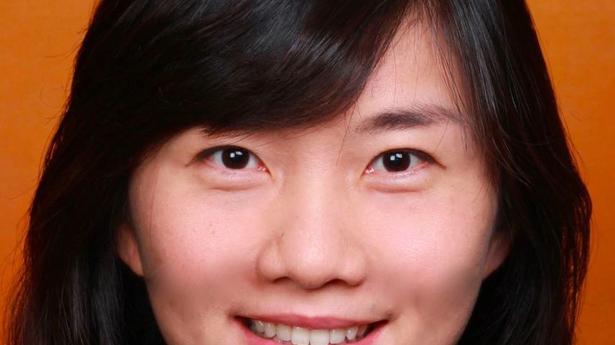
People in Taiwan do not want to be treated as a pawn in a great powers’ game, says Yu-Jie Chen
The Hindu
The general situation on the ground is business as usual — we still carry on with our daily lives.
The Taiwan question is in the international spotlight following China’s unprecedented military drills surrounding the island in the wake of the recent visit by U.S. House Speaker Nancy Pelosi, the most high-profile from the U.S. to Taiwan in 25 years.
While Taiwan has emerged as a key flashpoint in already tense U.S.-China ties, lost in the focus on the geopolitics is the question of how Taiwan and its 23 million people view the current moment. In an interview, Yu-Jie Chen, Assistant Research Professor at Academia Sinica in Taiwan, whose work focuses on international law and cross-strait relations, says Taiwanese are “pragmatic” and don’t want war, but want to preserve the status quo. With a “rapidly coalescing Taiwanese identity” as well as a “strong inclination” to preserve its democracy, China’s plan to absorb Taiwan peacefully, she adds, is unlikely to work.
While some Taiwanese were understandably nervous and concerned, most have remained calm and collected during China’s military exercises. The general situation on the ground is business as usual — we still carry on with our daily lives. The main reason for this relative placidity is that the people in Taiwan are quite used to China’s hostility whenever the relations across the Taiwan Strait deteriorate, and China’s threats have escalated in recent years. Additionally, the assessment in Taiwan was that there would be no invasion at this time. China’s live-fire drills following Pelosi’s visit were generally considered a performative act as well as a preparation for a potential future attack. This observation is in line with a poll conducted days after Pelosi’s visit. The poll shows that 60.1% of the people were not worried about further military conflicts across the Strait, while 34% were worried. Having said that, China’s military exercises have largely made Taiwanese more aware of the possibility of a real strike. The next question is what to do about it.
Discussion in Taiwan has revolved around reforming the military, including better training for our reserve forces and extending the conscription period from four months to one year. Yet, in addition to these military discussions, I believe that the Taiwan government must also better prepare civilians for a conflict scenario, including instructing people how to react to an emergent situation, retaining resilience until further aid arrives, as the people in Ukraine have done. There is a lot of room to improve in this aspect. For example, Forward Alliance, a non-governmental group, has worked hard on raising public awareness of a potential crisis, sharing information on how to pack a go-kit, and holding workshops to train civilians to become first responders, etc. The government can and should do more.
Symbolism matters in diplomacy, not to mention powerful symbolism that emanates from the strong support of the U.S. Congress. I do not see Pelosi’s visit as changing the adverse strategic environment with which Taiwan has already been confronted, and a number of colleagues that I’ve spoken to agree. The visit might have accelerated this trend, but China’s Taiwan policy had already been trending towards more hostility since 2016 after Taiwan elected, and reelected in 2020, current President Tsai Ing-wen of the Democratic Progressive Party (DPP), which has refused to accept Beijing’s “one-China principle” or any kind notions associated with “one China” ideas, including the “1992 Consensus” embraced by the KMT (Kuomintang). Given those developments, the escalation of adversity across the Taiwan Strait would appear to be a matter of course. Pelosi‘s visit is seen not so much as a genuine trigger point, but as a pretext under which Beijing could launch more drills that it had already planned to carry out around Taiwan.
When I think about our authoritarian past and today’s democracy, I think of Taiwanese endurance and perseverance, and very importantly, the tremendous political and personal sacrifices of our previous generations. They have paid a heavy price for democracy, especially those who were murdered, tortured, locked up, and constantly monitored and harassed. We, the later generations, benefit from what they have done for us and for our country. This is a humbling realisation for me and, I believe, for many others of my generation. We’re proud to be Taiwanese and value our hard-fought and hard-won democratic way of life.
The people in Taiwan can freely voice our decidedly different opinions on politics and policies to pressure our government to improve. Peaceful protests and demonstrations are commonplace in Taiwan, and no one demonstrating goes out to the street with the fear that our demonstration will be brutally quashed like we saw in Hong Kong or have seen often in China. I believe people live a much better life in this vibrant democracy, where our government is responsive to us because it is ultimately held politically and legally accountable by us, and our autonomy is respected. These are emancipating feelings we would not experience in a suffocating dictatorship.





















 Run 3 Space | Play Space Running Game
Run 3 Space | Play Space Running Game Traffic Jam 3D | Online Racing Game
Traffic Jam 3D | Online Racing Game Duck Hunt | Play Old Classic Game
Duck Hunt | Play Old Classic Game











